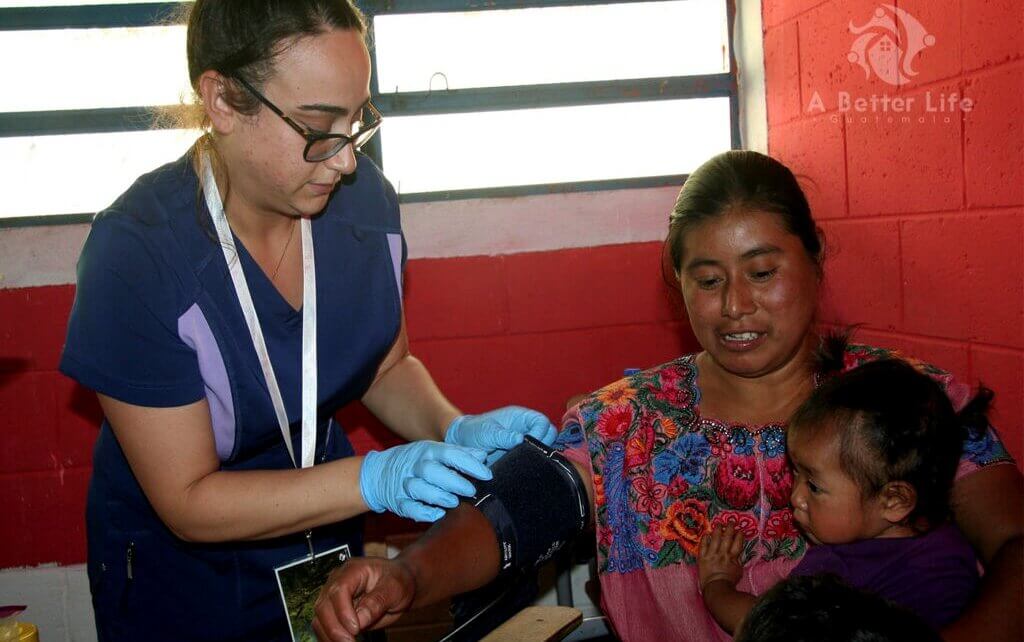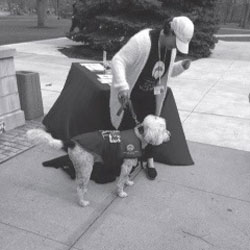Looking back on the beginning of this semester, the last thing I thought I’d be doing is working in a virtual, remote internship in Guatemala. Not in the urban parts, booming with industry, but in the rural communities trapped by poverty. This semester, I interned for A Better Life Guatemala (ABLG) with the hopes of giving people in Guatemala a better life.
When I first started my internship, I began by simply expanding my knowledge about the country in general. I visited Guatemala when I was eight years old; however, the memories of that trip did not provide a solid understanding of the region. As a health studies major hoping to go to medical school, I specifically began to look at the healthcare system in Guatemala, especially regarding vaccinations.
Looking through the numbers and statistics, I found Guatemala has an incredibly low routine-vaccination rate. It was mind-boggling to me, as I wondered why a country without substantial healthcare access would not want to prioritize routine vaccinations? Why does the Guatemalan population not have a higher vaccination rate? I had many guesses, but I could not find an adequate answer in my research.
I asked Archie Contreras, the founder of A Better Life Guatemala, the question, why? However, Contreras did not directly answer my question. Instead, he began to describe a plethora of stories. A Better Life Guatemala began by constructing and donating bunk beds to families in small communities. He described to me the overwhelming expression of gratitude from the families.
He shared, “Every time we arrive to begin to set up a bunk bed, we see they sleep on the floor. It is very impactful to watch the kids fight to see who is going to have the top bunk on the bed. At that moment, the two kids and their mothers thanked me very much. They told me their biggest dream was to have a bed one day.”
Through listening to Contreras’s anecdotes, my questions were answered, and my perspective completely changed, as I didn’t realize the extent of poverty. These communities, I came soon to understand, are not the communities visited through mission trips or read about in articles. These communities are the ones hidden and forgotten.
“No article, documentary, or news report could ever accurately convey the dismay of poverty, violence, food insecurity, and lack of attainable health services,” said Alexa LaVere, a Monmouth University alumna. In 2019, LaVere took the course called Guatemala Public Health, where she was able to work with A Better Life Guatemala and visit the country to help.
I was eager to know more after Archie’s insight and stories. I did not only want to find the answers to my “why?” questions, but I wanted to ask, “how can I make a difference?” Being over 3000 miles away, I was slightly discouraged as I thought the distance would not allow me to make a difference. I had so many ideas, yet I felt as though without being hands-on, my work was useless. I was wrong.
At the time, A Better Life Guatemala was in the process of organizing a health clinic for the community of Panimaché. I jumped at the opportunity, wanting to do whatever I could to help. I focused my attention on the healthcare access of the community, and specifically, their vaccination status. I proposed my idea to Contreras to create a survey, attempting to answer my “why?” questions first.
When the health clinic and surveys were completed, I was sent the results. I analyzed the write-ups of the appointments, the information about the patients, and the answers to my surveys. Seeing the handwriting of the patients and doctors describing problems opened my eyes even more to the living conditions of the community. While recording the answers to the survey questions, I began to feel that I was gathering valuable data that could be used to help.
Although the community members simply checked a box or described an event, that information gathered opened our eyes to problems we did not even consider. Most of the children had never been to a doctor before, nor had the resources to do so if they desired. It inspired A Better Life Guatemala to keep making life better.
The answers to the surveys, and the high volume of visitors to the clinic, emphasized the importance and lack of healthcare in these small, impoverished communities. When a diet consists of solely rice and beans and lack of clean water, health problems will arise, yet simple medical and everyday needs are unavailable.
After the conclusion of the clinic, Contreras was quick to address my question of how we are going to make a difference using this information. He proposed to me the next step: a mobile health clinic. By raising money, the organization has high ambitions and hope of reforming a school bus into a health clinic on the go. The easy mobility of the bus will give the organization the ability to visit Panimaché monthly for follow-ups as well as take other similar communities under their wings.
Chris Hirschler, Ph.D., MCHES, Associate Professor in the Health and Physical Education Department, has worked with A Better Life Guatemala for many years, exposing the Monmouth University community to the astonishing work of the organization. He described his experience as being, “deeply rewarding, witnessing the impact the course and the work with ABLG have on our students and individuals, families, and communities in Guatemala.”
Contreras quit his job, became fluent in English which he taught himself, and started this non-profit organization from the ground up. He explained, “We definitely change the lives in Guatemala, but our biggest mission is to create opportunities for people to leave the past and give them opportunities to grow as a person and as a family.” All in all, the organization is truly an inspiration, even from sitting in the Monmouth Student Center behind my Mac.
I am lucky for the opportunity to have a window into a remote part of the worlds and the ability to ask questions. Although I may not physically be in Guatemala, I still have an outlet to explore. A Better Life Guatemala has provided me the resources and information to continue to ask and answer my “why” questions, and therefore continue to riddle myself with my “how” questions. With the need to always ask questions comes the greater need to seek the answers—and, it will help give Guatemalans, a better life.




